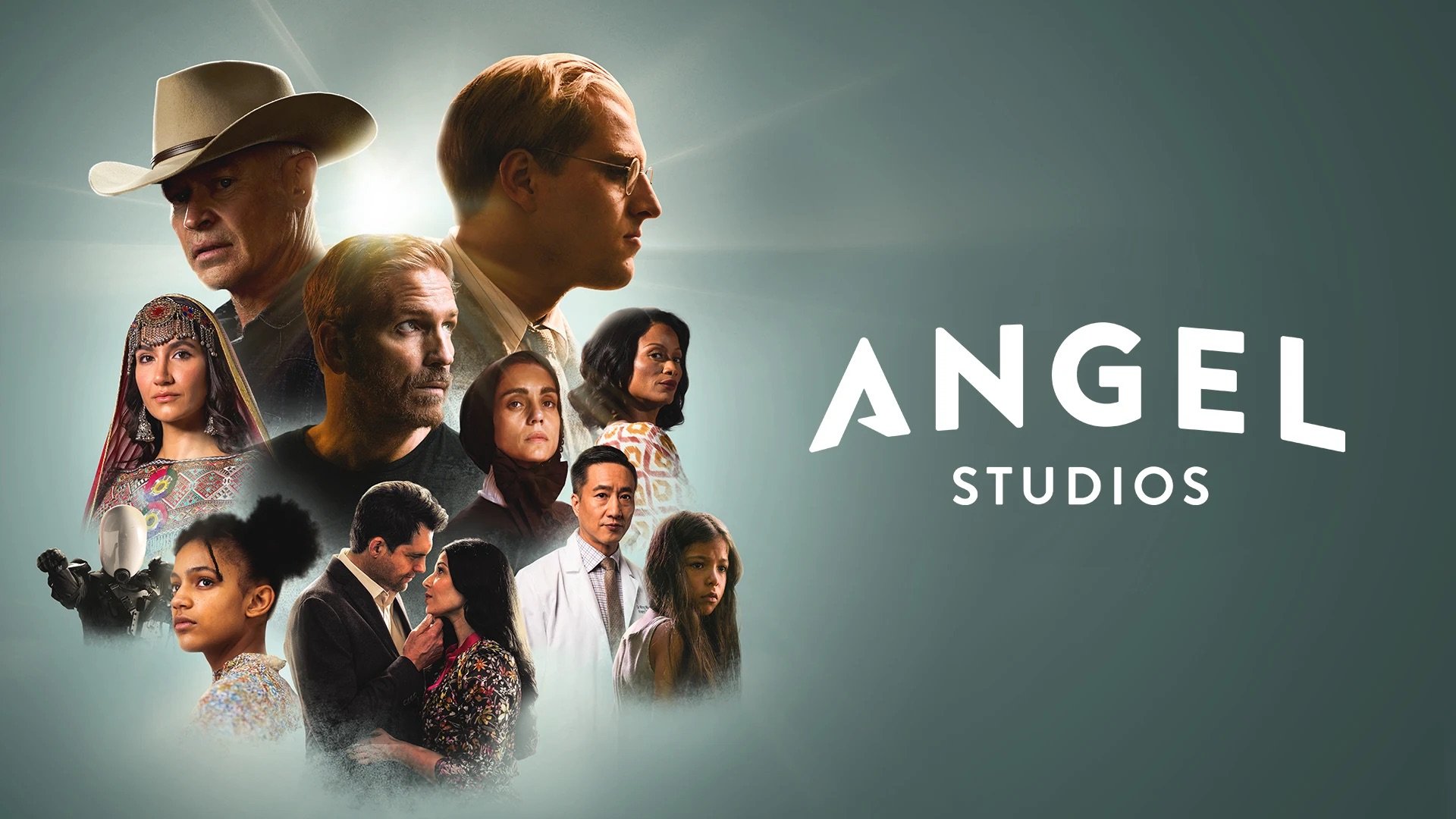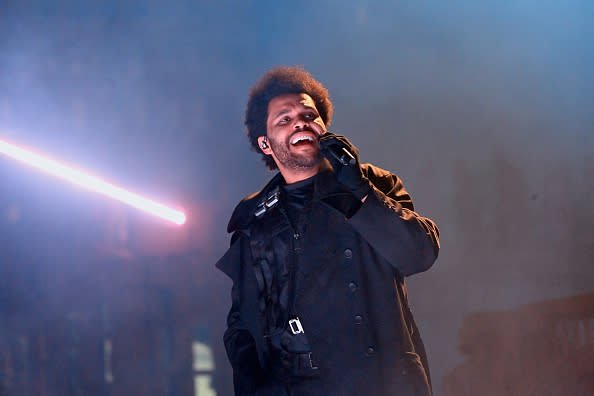Sequels, Beatles, and Bold Studio Pitches: What We Learned at CinemaCon 2025
Amazon MGM trotted out major stars like Chris Hemsworth, Halle Berry, Chris Pratt, Ben Affleck, Ayo Edebiri and Andrew Garfield for the studio’s first-ever CinemaCon presentation
From surprise tributes to theatrical promises, this year’s CinemaCon was less about spectacle and more about survival—and the studios showed up ready to make their case.
CinemaCon 2025 arrived at a pivotal moment in the post-pandemic evolution of theatrical film. As studios and exhibitors descended on Las Vegas for the annual convention at Caesars Palace, the mood was equal parts hopeful and anxious. Theatrical attendance remains below pre-2020 levels, studio leadership across Hollywood is in flux, and the future of how movies are distributed—via cinema, streaming, or a blend of both—still lacks a unified direction. Yet despite the uncertainty, the overarching message from the studios this week was one of defiance, optimism, and renewed commitment to the theatrical experience.
In that spirit, studios didn't just bring PowerPoint decks—they brought spectacle. A-list stars, extended trailers, live music, and even stunt bikes took the stage, signaling that if theaters are to survive, Hollywood is betting that big ideas, bold visuals, and larger-than-life storytelling will be the glue that holds it together.
Amazon MGM Studios Stakes Its Theatrical Claim
Amazon MGM Studios
Making its first official appearance at CinemaCon, Amazon MGM Studios wasted no time making a bold statement. In an industry known for hedging bets, Amazon declared that by 2027, it would release at least 15 theatrical films per year. Mike Hopkins, head of Prime Video and Amazon MGM Studios, emphasized the studio’s long-term vision for cinema—not as a secondary platform, but as a core part of its content strategy. "We’re passionate about the films we’re making, and we’re committed to this in the long term," Hopkins said.
The presentation was packed with star power. Audiences were treated to the first trailer for Project Hail Mary, a Ryan Gosling-led sci-fi epic based on the novel by The Martian author Andy Weir. Other high-wattage appearances included Ben Affleck, Chris Hemsworth, Halle Berry, Andrew Garfield, and Ayo Edebiri—all of whom appeared onstage before posing for a group selfie with Vivica A. Fox. The closing punch? Extended footage from The Accountant 2, with Affleck back in one of his most quietly beloved roles.
Kevin Wilson, head of theatrical distribution, addressed exhibitors directly: “Some of you nodded, smiled, and secretly texted each other, ‘We’ve heard this before.’ Our job tonight is to convince you this commitment is real.”
Paramount’s Balancing Act: Energy Meets Emotion
Paramount Pictures
Paramount Pictures
Paramount Pictures opted for a kinetic opening to its presentation—stunt cyclists and all—but its most memorable moment came in quiet reflection. Distribution chief Chris Aronson called for theater owners to invest in improving the in-theater experience, citing limited trailers, flexible pricing models, and grassroots promotion as keys to long-term growth.
CEO Brian Robbins addressed the elephant in the room—the looming Paramount Global–Skydance merger—but used the platform to emphasize the studio’s resilience. The finale came courtesy of Tom Cruise, who paid tribute to his late Top Gun co-star Val Kilmer. Following a moment of silence, Cruise introduced the trailer for Mission: Impossible — The Final Reckoning, earning a raucous standing ovation.
Angel Studios Broadens Its Mission
Angel Studios
Angel Studios, the Utah-based distributor behind Sound of Freedom, used its presentation to expand its image beyond faith-based content. With an emphasis on human stories, moral triumph, and family-friendly narratives, Angel showcased a surprisingly diverse lineup. Projects included The King of Kings, an animated Jesus origin story told by Charles Dickens to his son; Sketch, where a child’s drawings spring to life; and The Last Rodeo, about a father's journey to pay for his son’s medical treatment.
The company, which operates via crowd-based approval through its “Angel Guild,” touted its fast-growing membership (over 1 million and counting) and teased several ambitious projects for 2026. Among them: a biopic on young George Washington, an adaptation of the popular fantasy series Fablehaven, and a feature exploring the friendship between literary legends J.R.R. Tolkien and C.S. Lewis. Executives said these stories aren't limited to faith audiences—they're designed for anyone craving meaning and inspiration at the movies.
POPULAR ON THE CINEMA GROUP
Studios Pull Out All the Stops
Getty Images for Live Nation
CinemaCon is still, at its heart, a place for showmanship, and 2025 was no exception. Sony brought out the cast of its Beatles cinematic universe—a four-part series on the Fab Four’s rise to global stardom. Lionsgate staged a musical performance by The Weeknd, tied to his upcoming film Hurry Up Tomorrow. Disney brought 3D glasses and exclusive looks at Elio and Avatar: Fire and Ash. Universal stunned with a live orchestra. And Blumhouse’s Jason Blum donned a bear costume to hype Five Nights at Freddy’s 2, proving the genre’s continued dominance.
On the exhibition side, vendors flooded the trade floor with futuristic theater tech—from automated cocktail bars to reclining luxury seating and Dolby-enhanced sound systems. The atmosphere, somewhere between CES and a comic convention, reinforced the industry's goal: to make going to the movies feel like an event again.
Industry Reflections: Windows, Incentives & the Future
Carolyn Giardina
Beyond studio showcases, CinemaCon 2025 also leaned into policy and advocacy. MPA CEO Charles H. Rivkin made an impassioned call for federal production incentives, noting how international destinations are luring U.S. productions with aggressive tax programs. While California's own film tax credit program is setting records, Rivkin said Washington, D.C., needs to do more to keep America competitive.
Meanwhile, NATO President Michael O’Leary called for a universal theatrical window of 45 days, a reset from the shorter, pandemic-era gaps between theatrical and streaming. "There must be a baseline," he said, calling for clearer expectations for both audiences and stakeholders.
And while politics weren’t a major part of the week, Rivkin acknowledged the shifting ideological landscape. Hollywood's relationship with government remains complicated, but the goal remains clear: protect jobs, encourage production, and reaffirm the theater’s role as a cultural cornerstone.
THE CINEMA GROUP
YOUR PREMIER SOURCE FOR THE LATEST IN FILM AND ENTERTAINMENT NEWS















![Sundance 2026 Recap [Part i]
Another Sundance in the books. Last one in Park City— premieres, portraits, and the people who made it.
More to come!
📸: @jonathanpmoustakas on @sonyalpha
#sundancefilmfestival #sundance2026 #thecinemagroup](https://images.squarespace-cdn.com/content/v1/65c1a54efb10480185732c60/1770112011067-GAUJ8WUARIG299C1YW9J/image-asset.jpeg)